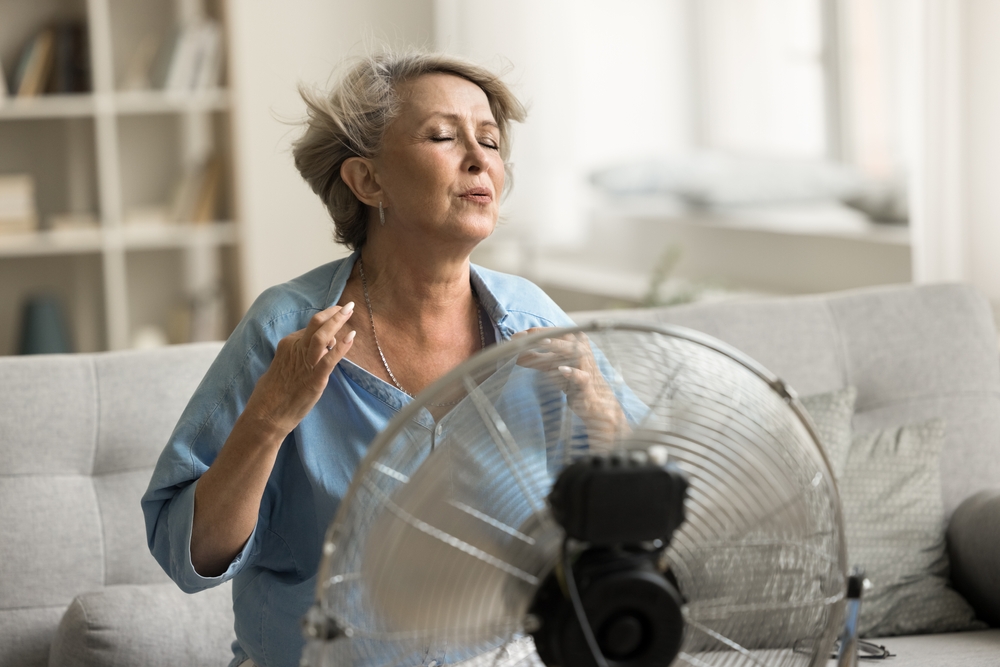Now summer has finally arrived across the UK, you may notice a few changes in your body as result of the rise in temperatures. Hormone experts TRT UK explains how hot weather affects hormones and offers advice on how to combat symptoms for a more comfortable summer.
Heat can worsen menopause symptoms
Warmer temperatures can affect those going through menopause by exacerbating existing symptoms. One of the most common symptoms of menopause is hot flushes (also known as hot flashes) which is the sudden feeling of intense heat across the upper body, especially across your face and chest, which can make you feel dizzy.
When exposed to higher external temperatures, your body’s own internal temperature regulation is triggered, resulting in even more uncomfortable hot flushes. To cope with this, it is recommended to maintain a healthy diet and regular exercise routine. It is also recommended to try relaxing, low impact movements such as yoga, tai chi or meditation, plus try “weight-bearing” activities where your feet and legs support your weight, such as walking or dancing.

Heat can affect menstrual cycle
Have you ever noticed your period is different during the summer months? You aren’t alone, as it has been proven that higher temperatures can not only worsen the physical symptoms of your period but also alter the length of the cycle.
As your body’s internal temperature rises anyway when you’re menstruating, which studies show is due to the increase of progesterone, the higher external temperature can make you feel even more uncomfortable.
In addition, particularly extreme heat can imbalance hormones such as progesterone and oestrogen which then leads to irregular periods, prolonged cycles and increased pain. To combat these symptoms in the summer, try and stay in the shade as much as possible (which you should try and do anyway, to prevent skin damage from prolonged sun exposure!) and keep cool by wearing light-coloured and especially airy fabrics such as linen or nylon.
Otherwise, maintaining a healthy lifestyle with a balanced diet and regular exercise is important to keeping on top of symptoms. If you find yourself struggling with extreme symptoms then be sure to see a doctor, as this could be a sign of an underlying issue, such as endometriosis.
Heat affects cortisol production
Found yourself feeling more anxious, worried or irritable when in the sunshine? This is caused to the extra production of cortisol which occurs in the summer. In fact, a study conducted in 2018 found that summer is the seasons when “people are most likely to have higher levels of circulating stress hormones.”
Cortisol, which is also known as the “stress hormone”, plays a vital role in the brain’s stress response and helps control your blood pressure and reduce inflammation. While your body does need some cortisol, too much can cause health conditions such as high blood pressure, anxiety and depression.
Studies have shown that in hot weather, your body will naturally increase its heat strain which results in a faster production of cortisol and other hormones including prolactin for brain development and cytokines for immune system development. While overall this is good for you, if you find yourself feeling too stressed then this could be a sign that your body is producing too much cortisol.
There are ways to help maintain your cortisol production, such as meditation, regular low-impact exercise and getting a good night’s sleep. This is especially key if you have a lot of stress in your life, say in your work life.